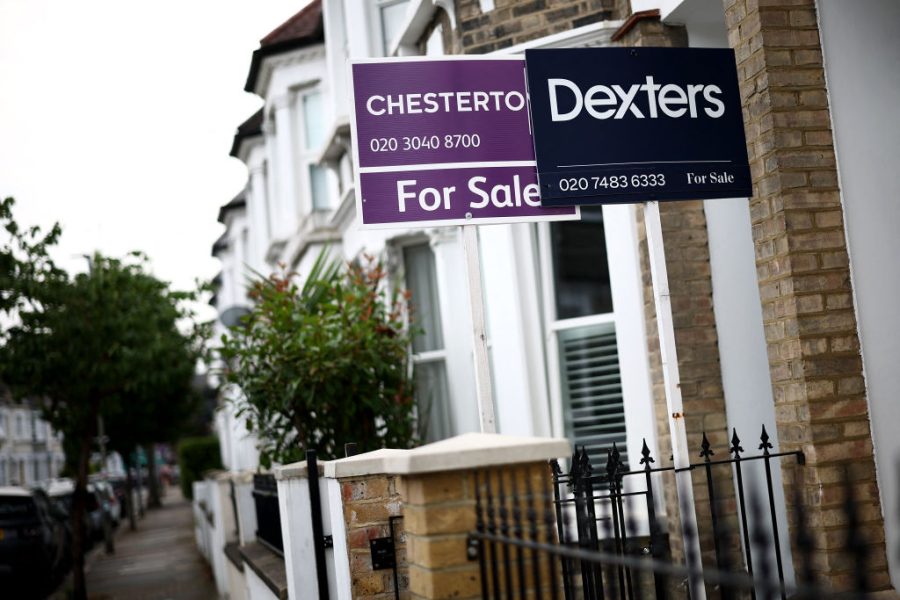A rare kernel of hopefully good news has been circulating the Treasury. No, we haven’t yet paid off the £2.7 trillion debt, and the state pension is still on path to imploding in a decade’s time. Instead, Britain’s most destructive and ambition-killing tax is for the chop and is to be replaced with a much more sensible system.
Property prices have risen by 259 per cent since 1997, with wages only rising by a lowly 68 per cent
Stamp Duty Land Tax has its origins in Regency England, and as the name suggests, it originally was levied on stamped documents in order to fund Britain’s war against Napoleon. In 1815, the stamp duty on a newspaper was an extortionate 4d – James Mill, father of John Stuart, wrote that the tax amounted to censorship by taxation. Thankfully, this form of journalistic tariff has been consigned to the history books. What remains is the tax on property transitions, and it is partly responsible for the housing market being the great antagonist of the British economy today.
As any homeowner knows, stamp duty is levied on property transactions and must be paid in ‘cash’ within 14 days of the purchase to the taxman. This means on top of deposits, an additional savings pot needs to be accrued. If a seller spends a little too long advertising through an estate agent, their stamp duty pot could be entirely eroded through a couple of months of slow housing market performance. We would not rationally collect any other tax in this way.
It is an enormously complex tax, having gone through five total revisions since 1997, and with its bands shifting inexorably as various lobbying organisations rise and fall in prominence. In 2016, for example, the charge was levied at 1 per cent between £125,000 and £250,000, yet by 2025, this threshold has grown to 5 per cent between £300,000 and £500,000. There are different rates for additional homeowners (landlords and, historically, prudent investors), nil-rate-bands shifting, and under the Conservatives, for first-time buyers. Tax holidays come and go, and there are additional calls to exempt new builds from stamp duty (by this author and others).
Adam Smith, back in 1776, lamented that taxes:
Upon the transference of property of every kind, so far as they diminish the capital value of the property, tend to diminish the funds destined for the maintenance of productive labour.
He argued further that they are ‘unequal’ and that ‘the buyer is scarce under the necessity of buying’. He said in a few words that if the transactional tax is messy, expensive, and irrational, it is bad. Research from his eponymous think tank shows that stamp duty destroys 75p of wealth for every £1 raised and that it was eight times more destructive than VAT. Both the benchmark Australian Henry Tax Review and the IFS’s Mirrlees Review found that the tax is essentially meritless and provide little argument as to why it should remain in place.
Stamp duty contributes to the dreadful labour mobility we experience, whilst also destroying the ambition of those grasping at the housing ladder as property values exceed salaries and inflation. It also ensures that wealth is captured in unproductive bricks, mortar, and glass, instead of in productive capital such as machinery and investments.
So, what is posed to replace it? Proportional property taxation is common, although implementation differs – our European neighbours and American cousins use these taxes to sustain a healthy but fair revenue for government expenditure. This tax would be levied on only a fifth of extant properties, obviously the most expensive, compared to the 60 per cent which stamp duty covers. It is based on a property’s value and can be estimated annually. It is a form of Georgism (looking at the Spectator’s own Wikiman, Rory Sutherland) and cogent with our understanding that land is the least acknowledged of the three core factors of production, as Mike Bird argues in his forthcoming book on land.
Readers will be forgiven for thinking me a champagne-swilling communist for advocating for this tax as a replacement for stamp duty. However, it cannot be ignored that the housing bubble through which the older middle classes enriched themselves, and younger generations have been immiserated with, has yet to be fairly compensated for in our economy. The ONS states that property prices have risen by 259 per cent since 1997, with wages only rising by a lowly 68 per cent. This cannot continue, and with a house-building revolution on the back burner, we can only hope that the ending of terrible taxes comes to the rescue.







Comments